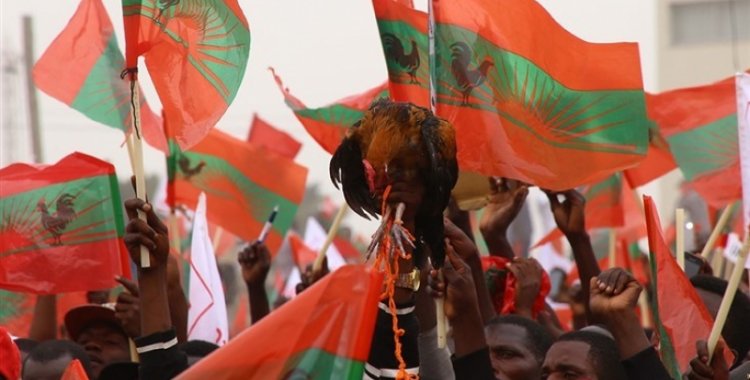In a statement to Lusa, the first secretary of the parliamentary group in Luanda, Alberto Ngalanela, said that in police control they claim they are not allowed to enter because they have not received any communication from the municipal administration and that they would have to have an authorization from the National Assembly.
"They said there is a crowd of people in the UNITA committee in Cafunfo and that the moment, as it is sensitive, is not recommended the presence of deputies," Ngalanela said.
The deputy clarified that this is a mission of the parliamentary group and therefore does not require authorization from the National Assembly.
Ngalanela added that Congressman Domingos Oliveira, UNITA's Lunda Norte secretary, had already spoken with the provincial police commander and that he would have told him that they could continue the work without constraint.
"However, we've been here [checkpoint at the entrance to Cafunfo] for about two hours," he said.
The UNITA delegation's visit to Cafunfo was aimed at gathering information on Saturday's events in this region rich in mineral resources that resulted in several deaths, injuries and arrests.
According to the police, about 300 people linked to the Portuguese Protectorate Movement Lunda Tchokwe (MPPLT), which for years has defended the autonomy of that region, tried to invade a police station on Saturday and in defense the forces of order and security killed six people.
The police version is contradicted by MPPLT leaders, political parties in the opposition and local civil society that speak of more than a dozen dead.
With this UNITA parliamentary mission is also civil society activist Laura Macedo, who also reported to Lusa this retention, for which she was outraged.
The autonomy of the Lundas region (Lunda Norte and Lunda Sul, in eastern Angola), rich in diamonds, is claimed by this movement, which is based on a Protectorate Agreement signed between Lunda-Tchokwe natives and Portugal in 1885 and 1894 that would give the territory an internationally recognized status.
Portugal would have ignored the kingdom's condition when it negotiated Angola's independence between 1974 and 1975 only with the liberation movements, according to the movement.







